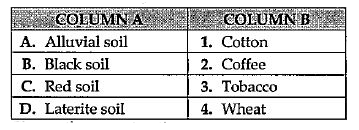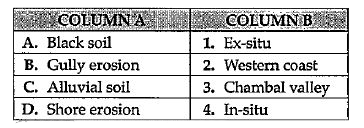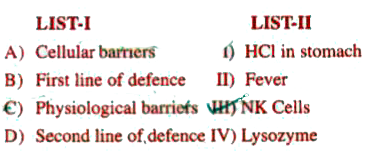Regarding the nuclear forces, choose the correct options.
(a) They are short range forces
(b) They are charge independent forces
(c) They are not electromagnetic forces
(d) They are exchange forces
The correct Answer is:A, B, C, D
To solve the question regarding the properties of nuclear forces, we need to evaluate each of the given options based on our understanding of nuclear forces. Here’s a step-by-step breakdown of the solution:
Step 1: Understand the Nature of Nuclear Forces
Nuclear forces are the interactions that hold the protons and neutrons together in the nucleus of an atom. They have specific characteristics that differentiate them from other types of forces.
Step 2: Evaluate Each Option
We will evaluate each of the four statements provided in the question.
Option A: They are short-range forces.
- Nuclear forces operate over a very short range, typically on the order of 1 femtometer (10^-15 meters). Beyond this range, the forces diminish rapidly. This statement is correct.
Option B: They are charge independent.
- Nuclear forces do not depend on the charge of the nucleons (protons and neutrons). Whether it is a proton-proton, proton-neutron, or neutron-neutron interaction, the nature of the force remains the same. This statement is correct.
Option C: They are not electromagnetic forces.
- Nuclear forces are distinct from electromagnetic forces. They are mediated by the exchange of particles called mesons, which do not carry electric charge. Therefore, this statement is correct.
Option D: They are exchange forces.
- Nuclear forces arise due to the exchange of virtual particles, specifically mesons, between nucleons. This characteristic classifies them as exchange forces. This statement is correct.
Step 3: Conclusion
Since all four statements about nuclear forces are correct, we conclude that the answer to the question is that all options are valid.
Final Answer:
All the statements regarding nuclear forces are correct.
---
Nuclear forces are the interactions that hold the protons and neutrons together in the nucleus of an atom. They have specific characteristics that differentiate them from other types of forces.
We will evaluate each of the four statements provided in the question.
- Nuclear forces operate over a very short range, typically on the order of 1 femtometer (10^-15 meters). Beyond this range, the forces diminish rapidly. This statement is correct.
- Nuclear forces do not depend on the charge of the nucleons (protons and neutrons). Whether it is a proton-proton, proton-neutron, or neutron-neutron interaction, the nature of the force remains the same. This statement is correct.
- Nuclear forces are distinct from electromagnetic forces. They are mediated by the exchange of particles called mesons, which do not carry electric charge. Therefore, this statement is correct.
- Nuclear forces arise due to the exchange of virtual particles, specifically mesons, between nucleons. This characteristic classifies them as exchange forces. This statement is correct.
Since all four statements about nuclear forces are correct, we conclude that the answer to the question is that all options are valid.
All the statements regarding nuclear forces are correct.
Topper's Solved these Questions
- MODERN PHYSICS - 2BOOK - DC PANDEY ENGLISHCHAPTER - MODERN PHYSICS - 2EXERCISE - Level 2 Comprehension Based
3 Videos
- MODERN PHYSICS - 2BOOK - DC PANDEY ENGLISHCHAPTER - MODERN PHYSICS - 2EXERCISE - Level 2 Subjective
10 Videos
- MODERN PHYSICS - 2BOOK - DC PANDEY ENGLISHCHAPTER - MODERN PHYSICS - 2EXERCISE - Level 2 Single Correct
13 Videos
- MODERN PHYSICS - 1BOOK - DC PANDEY ENGLISHCHAPTER - MODERN PHYSICS - 1EXERCISE - Level 2 Subjective
23 Videos
- NUCLEIBOOK - DC PANDEY ENGLISHCHAPTER - NUCLEIEXERCISE - C MADICAL ENTRANCES GALLERY
46 Videos
Similar Questions
Knowledge Check
Match the following

Choose the correct option:AA-3, B-2, C-1, D-4BA-4, B-1, C-3, D-2CA-2, B-4, C-1, D-3DA-4, B-1, C-2, D-3Match the following

Choose the correct option:AA-1, B-3, C-4, D-2BA-4, B-1, C-3, D-2CA-2, B-4, C-1, D-3DA-4, B-3, C-1, D-2Choose the correct option as directed.
ACsH>KH>NaH>LiH (Order of stability)BH2O<NH3<CH4 (Order of dipole moment)CPH3<AsH3<NH3<SbH3 (Order of boiling point)DX−−−H−X,X=O>F>N>S>Cl (Order of strength of H-bonding)
Regarding stationary waves, choose the correct options.
View SolutionRegarding a nucleus choose the correct options.
View SolutionObserve figures and choose the correct option.

View SolutionMatch the columns and choose the correct option:

View SolutionMatch the following and choose the correct option.

View Solution
